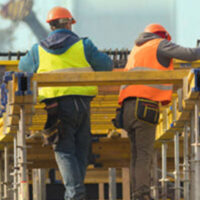The Future of New York City’s Scaffold Law

There are many things that make the Big Apple unique, but in terms of its approach to construction, there is one thing that stands out more than anything else: the Scaffold Law. This law is more than 100 years old, and it predates workers’ compensation, OSHA, and many other construction-related laws in the state of New York. Aside from being one of the most unique things about New York, the Scaffold Law is also notable because it is constantly under attack by lawmakers.
The Scaffold Law is unique because it puts total, absolute liability on contractors and property owners for any gravity-related incidents and falls, even when safety protocols are being followed and workers are issued proper safety equipment and gear.
If you’re a construction worker in New York, you might be wondering whether this law will even exist in the future. How will changes to this law affect the way you work, and your ability to pursue personal injury claims due to unsafe working environments? While it’s always a good idea to team up with a qualified lawyer if you have suffered an accident, it also makes sense to stay informed about the latest developments in the construction industry. So what does the future hold in store for the Scaffold Law?
Calls for Reform
In 2020, it became clear that there were widespread calls to reform the Scaffold Law. A coalition of business advocacy and local government groups once again voiced their concerns about this law, and they aim to remove the absolute liability standard from the Scaffold Law. This group wrote a letter to Governor Anthony Cuomo, highlighting their concerns. They argued that reform would free up millions of dollars in state budgets while saving even more money in infrastructure costs.
This came at a time when New York was facing a dire economic outlook during the COVID-19 crisis. Small businesses were struggling to find insurance coverage due to the Scaffold Law. This is the latest in a long line of protests and attempts to reform the Scaffold Law. Other recent actions took place in 2013 and 2016. Time and time again, these calls for reform have achieved essentially nothing.
The New York Committee for Occupational Safety & Health is Fighting Back
Fortunately for construction workers in New York City, The New York Committee for Occupational Safety & Health (New York CityOSH) has been standing up for the rights of construction workers in this state. This organization argues that the Scaffold Law is important for worker safety.
The Scaffold Law isn’t as Simple as Some People Think
Many people read “absolute liability” and assume that the contractor or property owner is at fault 100% of the time whenever a gravity-related incident takes place. But this simply isn’t the case. As many experts have pointed out, these personal injury lawsuits must still go through the legal process.
In many cases, plaintiffs must prove their case to a jury. There are still checks and balances to ensure that contractors and property owners are given a fair chance to defend themselves in court. Because of this, the Scaffold Law isn’t as unfair as many business advocacy groups like to make it out to be.
Get Legal Help
Because the Scaffold Law is anything but an “open-and-shut” case, it’s important that you enlist the help of a qualified attorney if you have suffered a fall or a gravity-related injury at a construction site in New York. Reach out to the New York City construction accident attorneys at the office of Michael Gunzburg, P.C. today, and we’ll fight for your rights as a worker.
Resource:
insurancejournal.com/news/east/2020/10/08/585902.htm


